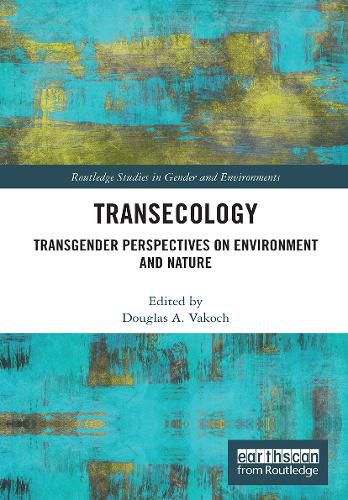Readings Newsletter
Become a Readings Member to make your shopping experience even easier.
Sign in or sign up for free!
You’re not far away from qualifying for FREE standard shipping within Australia
You’ve qualified for FREE standard shipping within Australia
The cart is loading…






There is a growing recognition of the importance of transgender perspectives about the environment. Unlike more established approaches in the environmental humanities and queer studies, transecology is a nascent inquiry whose significance and scope are only just being articulated. Drawing upon the fields of gender studies and ecological studies, contributors to this volume engage major concepts widely used in both fields as they explore the role of identity, exclusion, connection, intimacy, and emplacement to understand our relationship to nature and environment.
The theorists and ideas examined across multiple chapters include Stacy Alaimo’s notion of trans-corporeality as a contact zone between humans and the environment, Timothy Morton’s concept of mesh to explore the interconnectedness of all beings, Susan Stryker’s notion of trans identity as ontologically inescapable, Catriona Mortimer-Sandilands and Bruce Erickson’s history of the development of queer rural spaces, Judith Butler’s analysis of gender as performative -with those who are not properly gendered being seen as abjects -and Julia Serano’s contrasting rejection of gender as performance.
Transecology: Transgender Perspectives on Environment and Nature will be of great interest to scholars, graduate students, and advanced undergraduates in transgender studies, gender studies, ecocriticism, and environmental humanities.
$9.00 standard shipping within Australia
FREE standard shipping within Australia for orders over $100.00
Express & International shipping calculated at checkout
There is a growing recognition of the importance of transgender perspectives about the environment. Unlike more established approaches in the environmental humanities and queer studies, transecology is a nascent inquiry whose significance and scope are only just being articulated. Drawing upon the fields of gender studies and ecological studies, contributors to this volume engage major concepts widely used in both fields as they explore the role of identity, exclusion, connection, intimacy, and emplacement to understand our relationship to nature and environment.
The theorists and ideas examined across multiple chapters include Stacy Alaimo’s notion of trans-corporeality as a contact zone between humans and the environment, Timothy Morton’s concept of mesh to explore the interconnectedness of all beings, Susan Stryker’s notion of trans identity as ontologically inescapable, Catriona Mortimer-Sandilands and Bruce Erickson’s history of the development of queer rural spaces, Judith Butler’s analysis of gender as performative -with those who are not properly gendered being seen as abjects -and Julia Serano’s contrasting rejection of gender as performance.
Transecology: Transgender Perspectives on Environment and Nature will be of great interest to scholars, graduate students, and advanced undergraduates in transgender studies, gender studies, ecocriticism, and environmental humanities.